Flatness is a long-running ‘site of resistance’ (Dr Sylvia Theuri) inspired by the expanses of the screen, the outdoors and community networks. Read more about us.
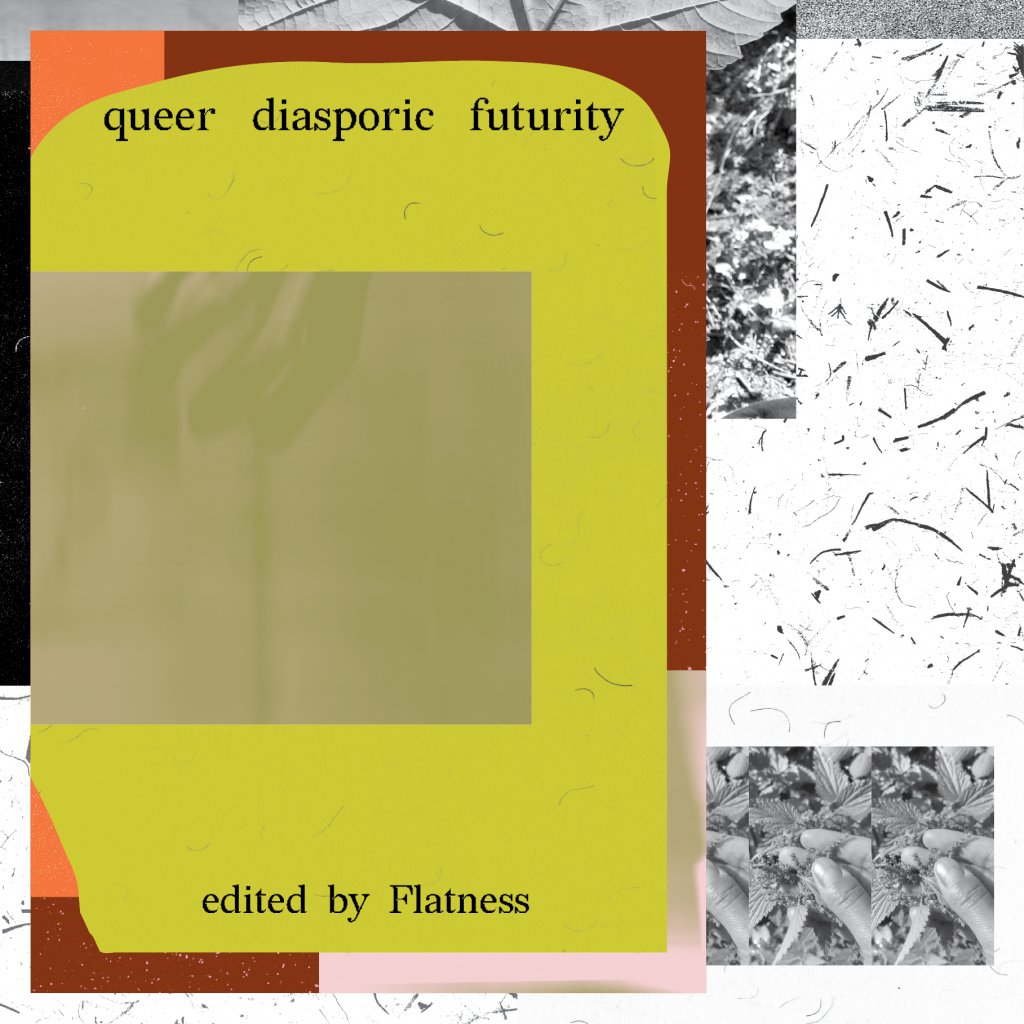
Our new book Queer Diasporic Futurity contains a collective call to restore loving connections to the body and to nature. The collection makes visible a vital network of practices embodying an ethics of sustainability, accessibility and futurity. This limited edition publication and special launch poster is available to buy for £15 + p&p. Proceeds from the sale of QDF go towards relief efforts in Palestine and Lebanon.
Contributions to QDF include:
• A foreword by Evan Ifekoya;
• Introductions by Flatness founder, Shama Khanna;
• Reflections on Earthlove within urban settings and facilitating the Community Apothecary by Rasheeqa Ahmad;
• An in-depth discussion on ‘Queering Economics’ organised by Decolonising Economics with guests Evan Ifekoya, Amardeep Singh Dhillon and June Bellebono addressing queer infrastructures of care, redistribution of power and spiritual relationships to money;
• A divination essay by Daniella Valz Gen probing questions of sustainability and growth within practice;
• A response to the entangled temporality of diasporic life by Aditi Jaganathan;
• A wellbeing spell by Adam Farah;
• And a scorebook tenderly exploring introverted tomboy and transmasc sounds by Nat Lall.
QDF is published in partnership with not/nowhere artist workers’ co-operative and has been beautifully designed by Design Print Bind.
Place your order via paypal.me/QDFbyFlatness to receive a copy of our book for £17.70 (£15 + £2.70 UK p&p/ £22 including International p&p) along with any donations you’re able to make.
The process is a little clunky, but can be broken down into the following steps:
– First, choose the ‘send’ (not ‘request’) money option
– To ensure all your ££ comes to the fundraiser choose the ‘friends and family’ payment option. Or, if you wish to choose the ‘item or service’ option please add £1 to the cost of the book (i.e. £18.70 in total) to cover extra charges incurred.
– Lastly, add your address in the “What’s this payment for?” box. We will be in touch shortly to confirm your details for delivery. Much gratitude for your support.
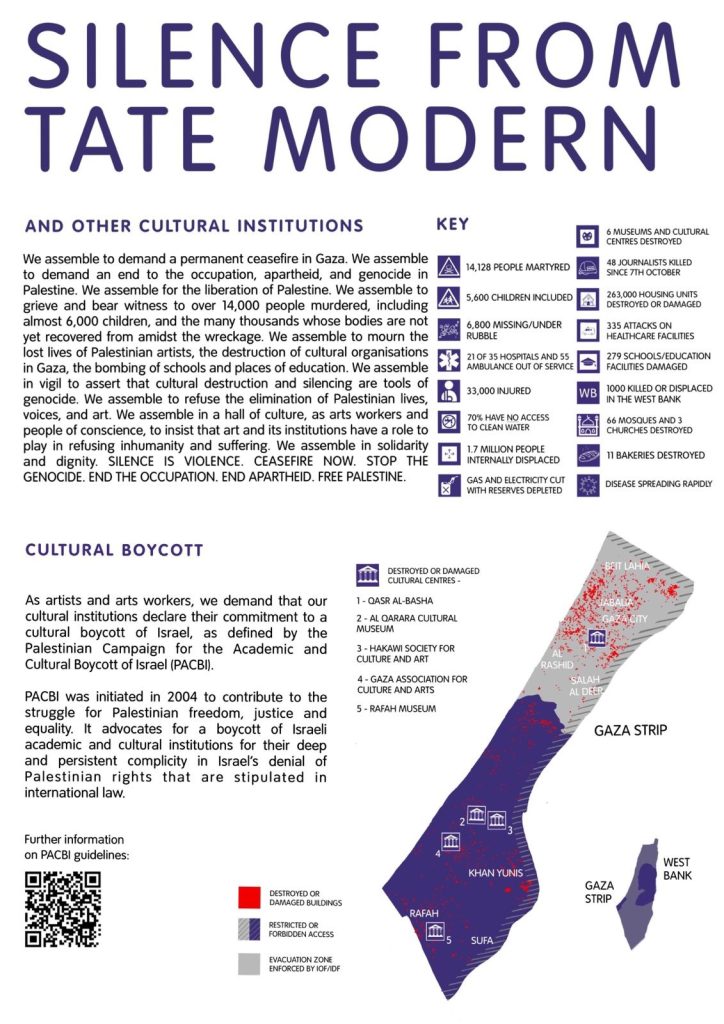
Thanks to Art Workers For Palestine for sharing this documentation from the vigil for Palestinian artists held at Tate Modern on 26 November 2023. The Tate have made a statement in solidarity with Ukraine but are keeping silent about Gaza. Why?
Silence is violence. Denounce the ongoing violence of occupation. Cultural boycott of Israel and permanent ceasefire now.

Flatness is in grief and rage at the ongoing genocide in Palestine as well as the apartheid which evidently exists beyond national borders but in people’s minds too. See you on the streets each week in our thousands and in our millions until there is justice for Palestinians and all colonised peoples. We Are Many. Read the latest Radicle newsletter to find an accessible list of resources and reporters to follow.
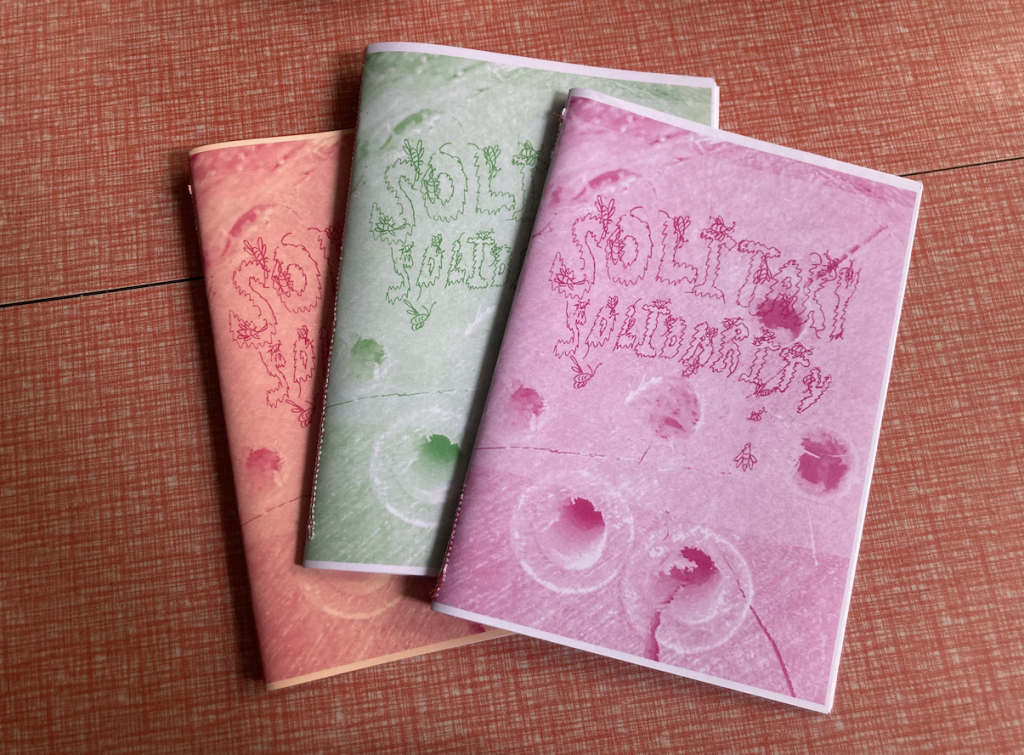
Jack Jeans’s new ‘Bee Zine: Solitary:Solidarity’ with paintings by Ruzha Kazandjieva is now available as a free download and as a hand-bound, risoprinted zine. Follow the link to buy and we can send you a copy or head to Peckham Books while stocks last!
Bee zine: Solitary:Solidarity
Compiled by Jack Jeans with artwork by Ruzha Kazandjieva
Bee Zine: Solitary:Solidarity by Jack Jeans builds solidarity with solitary bees and private renters to protect biodiversity and improve living conditions. Where homeowners and honey bees are the only one prioritised, we all lose out.
The zine accompanies the bee homes Jack made and installed in Peveril Gardens after our Swap Shop in January. In the spirit of the zine, the ink and materials used mean the publication is fully compostable! Read more.
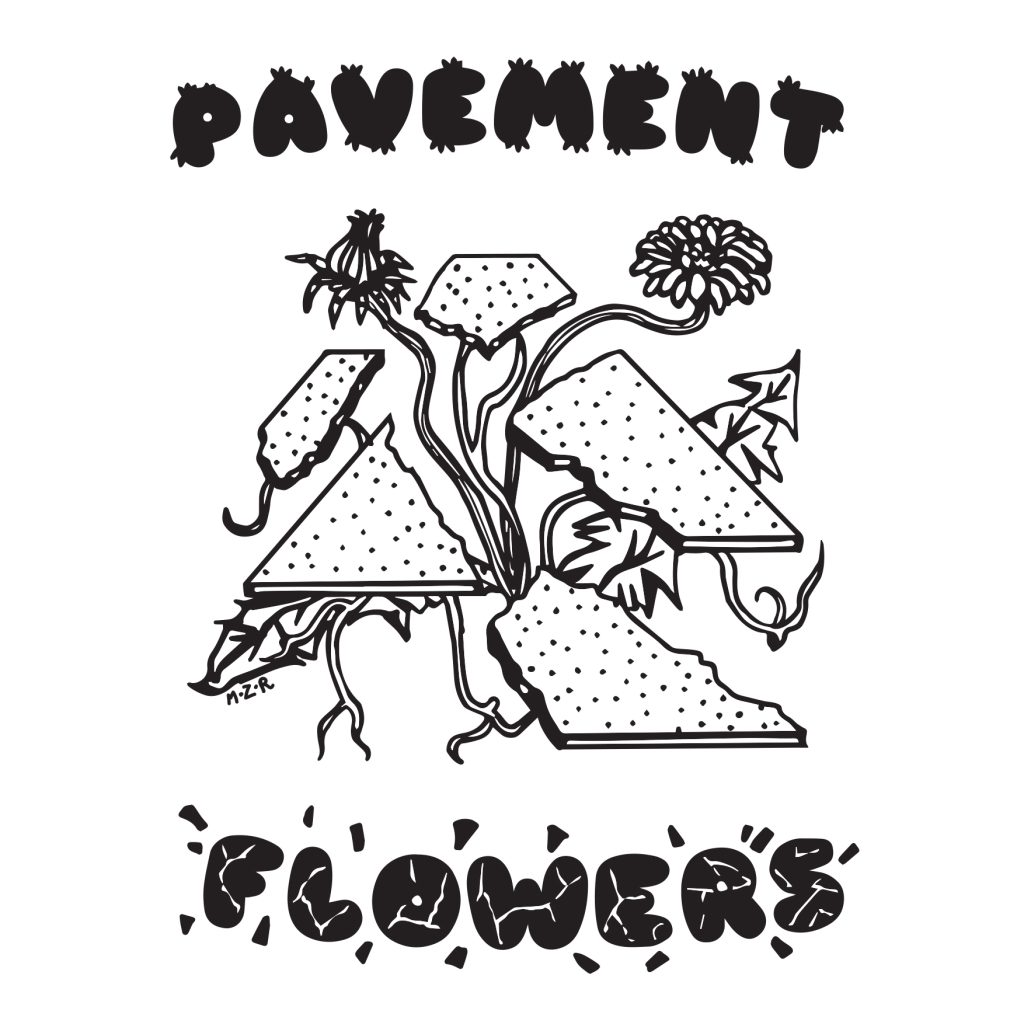
In June Flatness took part in the first Presse Books Fair, selling publications by contributors including Texta Queen, Mohammed Z. Rahman, Nat Lall, Steve & Samantha, 56a Infoshop, Beth Bramich and, alongside our book Queer Diasporic Futurity (QDF), two brand new zines by Jack Jeans and Hannah le Feuvre and Ulijona Odišarija. Pavement Flowers by Mohammed Z. Rahman, QDF by Flatness and Bee Zine: Solitary:Solidarity compiled by Jack Jeans are available to buy or download from the site.
Plant Medicine of the City: A seasonal diary by Rasheeqa Ahmad. What new tastes and experiences beyond our comfort zone can transform our sense of what’s possible?
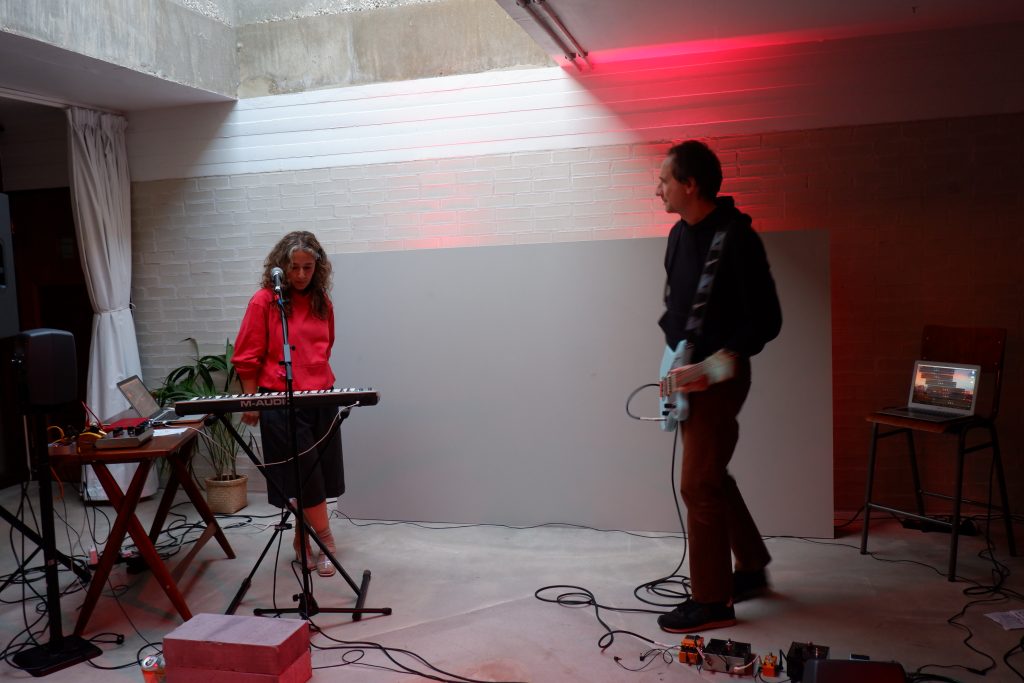
So pleased to host Ulijona Odišarija and James Lownes’ band Steve & Samantha at Presse Books to launch their new EP ‘Better is Better’ and celebrate the culmination of our residency at Forma and Peveril Gardens. Listen to their full EP on all streaming platforms including Bandcamp.
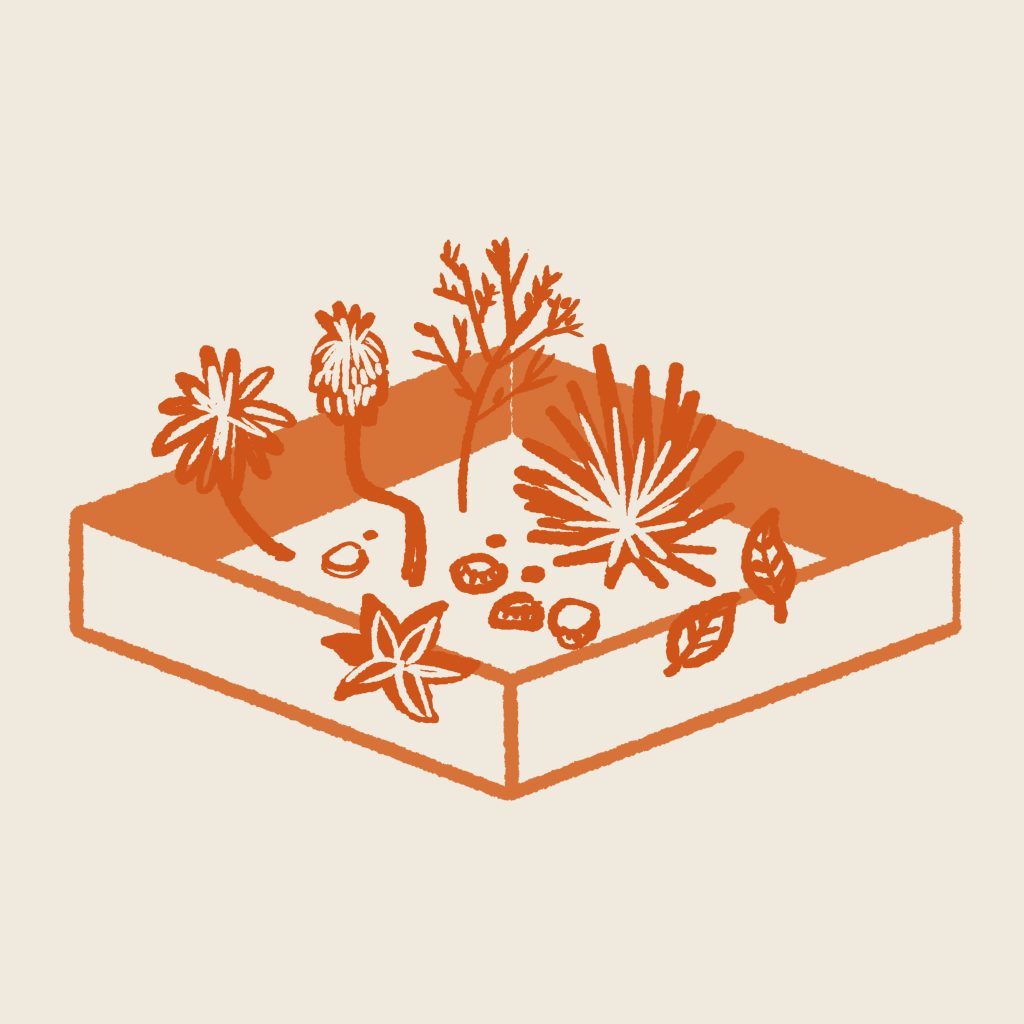
Thanks to everyone who made it to the programme we put together at FormaHQ and Peveril Gardens over the February half term. We appreciated your company defeating the Winter dank! Special thanks to contributors Ali Yellop, Design Print Bind, Ulijona Odišarija & Hannah Lefeuvre and Richard Court for being so generous with your time and sharing so much knowledge and inspiration.
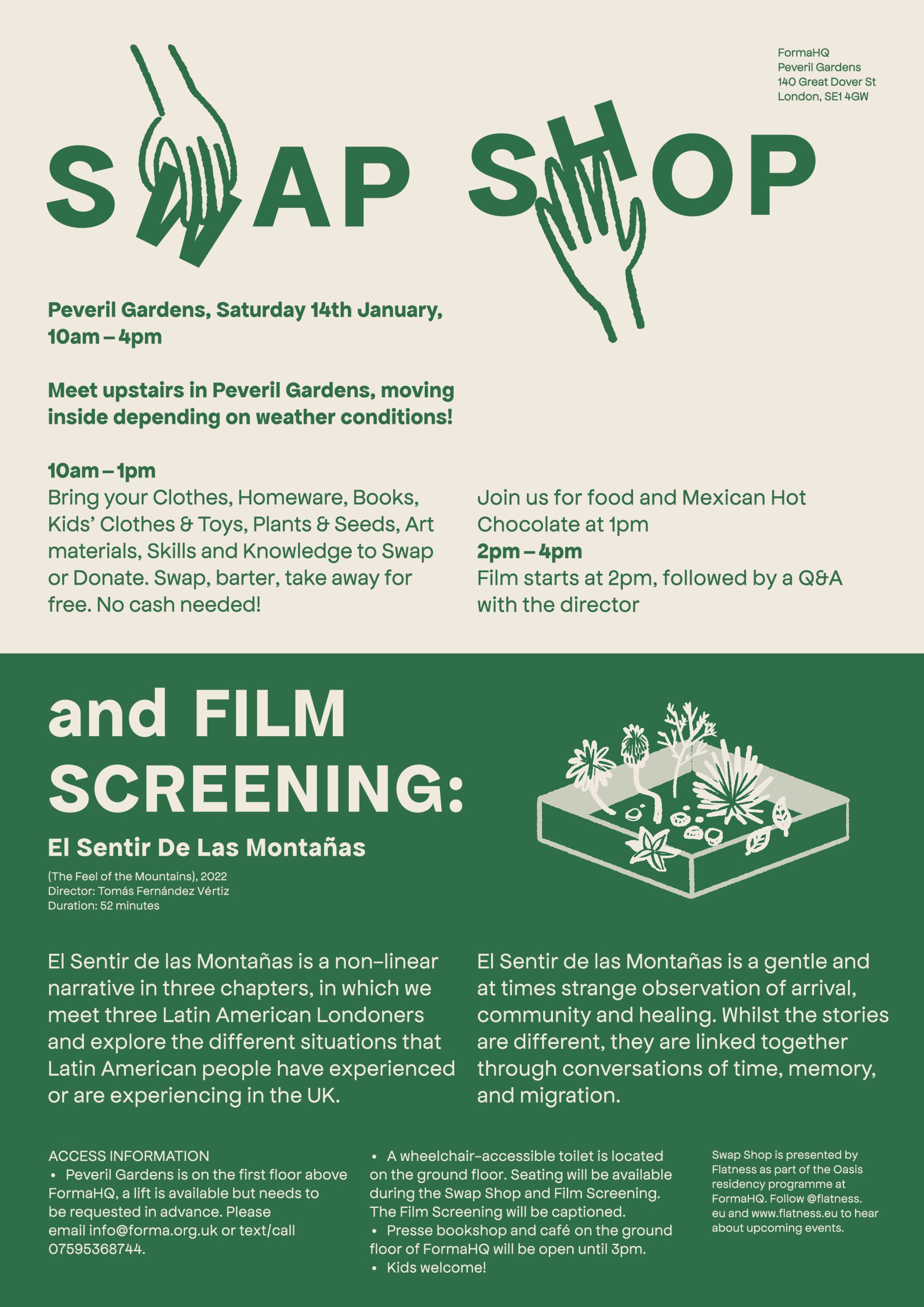
Thanks to everyone who came to the swap shop and screening event at FormaHQ (documentation is up here). It was great to meet everyone and reflect on notions of value, redistribution and mutual care with you. There was a surplus of donations (thank you) but it was perhaps the smaller swaps of things that still had value for both swappers that were most 💫 in defeating capitalism ; )
Big thanks to filmmaker Tomás Fernandez Vértiz for your beautiful film and conversation (not to mention the warming drink of Mexican hot chocolate and Colombian sweets you brought for everyone), Southwark Notes for chatting about community activism around Elephant, and Jack Jeans for making the insect homes for Peveril Gardens and seed bombs for the swap.
We were overwhelmed by the response and look forward to seeing you again for events we’re planning during the half term break 14-18 February.
The Chiron Choir was formed on occasion of Dr. Hannah Catherine Jones’s exhibition ‘OWED TO CHIRON (The Wounded Healer) at Mimosa House in London at the end of last year. I was honoured to be invited to write about HCJ’s work in a text entitled ‘Vulnerability with Attitude (Overdue Dues)‘.
Thanks to Flatness contributor Joseph Walsh for this welcome throwback to the Summer and AssemblePlay’s Mini Festival of Play that we curated as part of the public programme for Brent Biennial 2022, ‘In the House of my Love’.
Thanks too to the playworkers and their loose parts, all the children and everyone who came along to Kilburn Grange Park to join us. Scroll down for ‘In the Curve’, another contribution by Joseph recorded during lockdown.
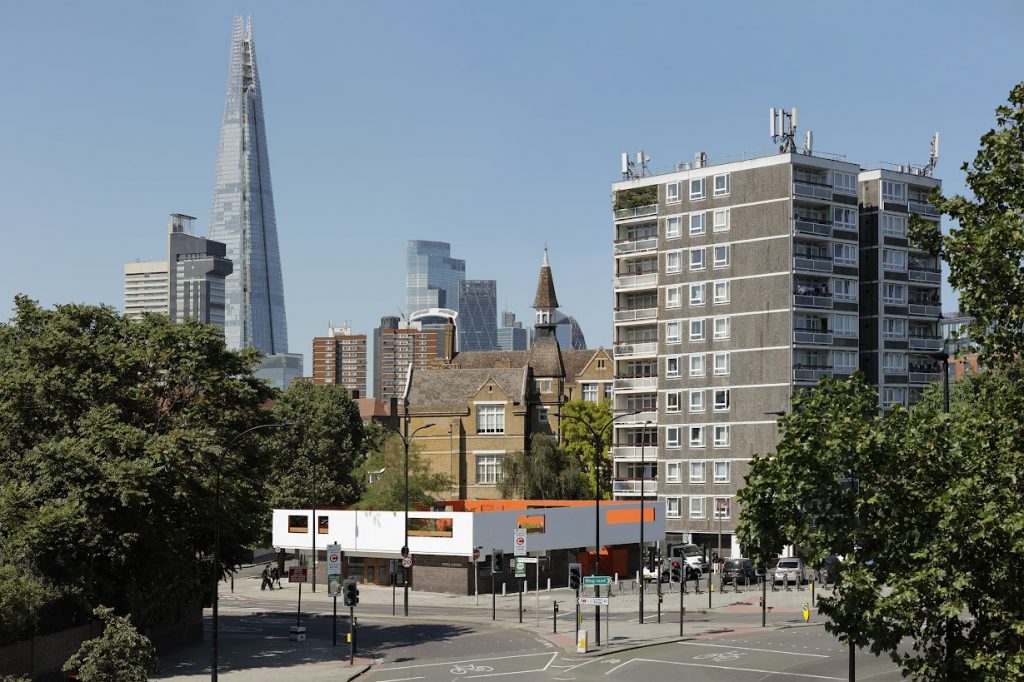
Flatness have just moved to Elephant and Castle to begin our Oasis residency at FormaHQ. Lasting until Spring 2023, the residency invites socially engaged practitioners to develop and deliver a cultural programme that strengthens the bridge between the newly developed FormaHQ (retrofitted into a studio building, cafe, events space and public garden from 1960s garage block and podium on top) and its local communities, creating meaningful connections that have social impact and harmonise with the organisation’s activities.
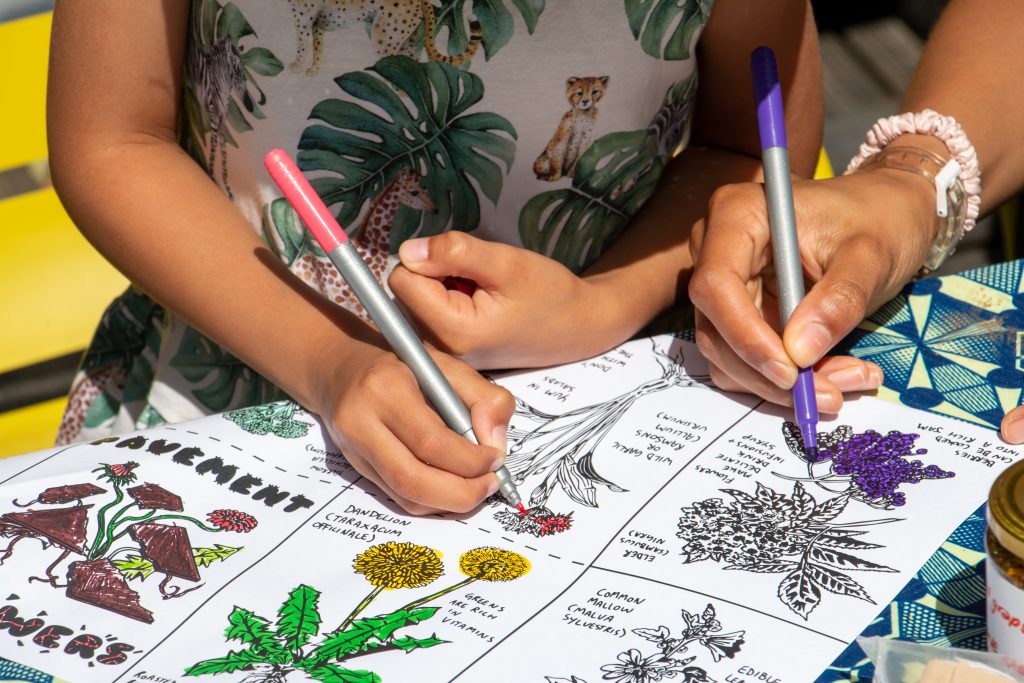
Brent Biennial 2022 Public Programme by Flatness
Flatness curated a public programme of talks, workshops, activities for kids, screenings and a conference for Brent Biennial ‘In the House of my Love’. Lifting the conversations from QUEER DIASPORIC FUTURITY off the page, the programme gathered together community-building practices that centre on creativity, healing, listening, showing up for others and asking bold questions, in what can otherwise be a dizzying political environment. Events included a misery medicine walk, a day of action Against the Hostile Environment (with QDF contributors Amardeep Singh Dhillon, Beth Saha and Daniella Valz Gen), a series of community listening events, an event on housing called Homes for Queers (with Adam Farah), and kids’ events with misery and AssemblePlay. The intention was to nurture connections that can help to find one’s voice and feel supported in taking a stand against hostility.
Thanks to all who joined us!
The documentation above is of a misery medicine workshop held in July showing the Pavement Flowers zine made for the event by Mohammed Zaahidur Rahman. Photography by Kes-Tchaas Eccleston.
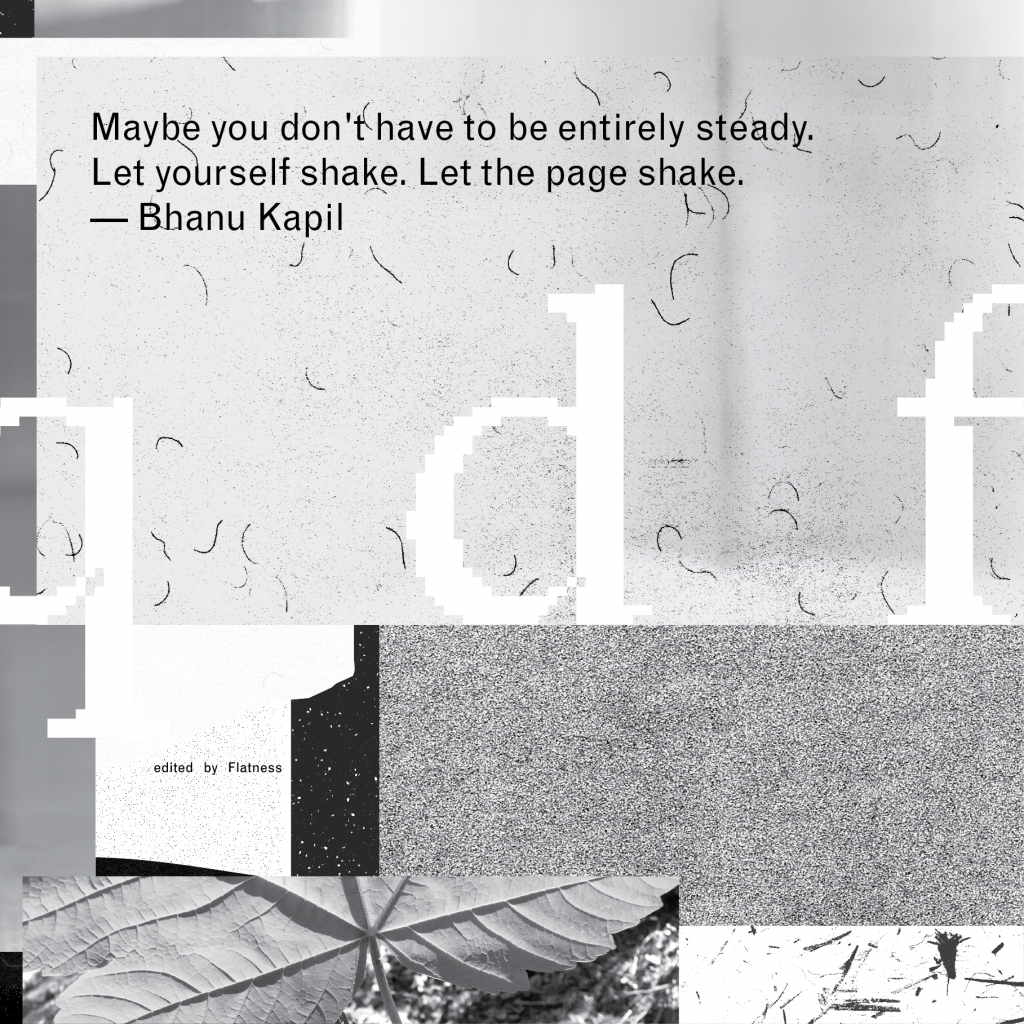

‘Queer Diasporic Futurity’ edited by Flatness
The book launch at Studio Voltaire at the start of July was a shy success and we’re happy that copies of Queer Diasporic Futurity have since found homes at addresses from Wales to Naarm (so called Melbourne). This limited edition publication and special launch poster is available to buy for £17 incl. p&p (payment details follow below). Copies are also available at Category is Books and Good Press in Glasgow, Manchester Metropolitan Uni Library and Presse, BOOKS, Koenig Books at Whitechapel Gallery and the Women’s Art Library, Goldsmiths in London. Get in touch if you have any access requests, or if you would like to order one of four remaining bundles of TextaQueen’s ‘Learn your ACABs’, Nat Lall’s ‘Scores for Sissy Bois’ and QDF for £30 + p&p.
Queer Diasporic Futurity, commissioned by SAFEDI and developed in partnership with not/nowhere artist workers’ co-operative, marks 9 years of the Flatness curatorial platform for artists’ moving image and network culture, bearing witness to the decentralised QTIBPOC (Queer, Trans and Intersex identified Black and People of Colour) networks it has come to form a part of.
QDF contains a collective call to restore loving connections to the body and to nature. The collection makes visible a vital network of practices focused on sustainability, accessibility and futurity. QDF reflects on the holistic conditions the book’s contributors are creating in order to disassociate less from the exhaustion of everyday overstimulation and disappointments, and to begin to identify new, potentially transformative felt connections to build upon.
Plant Medicine of the City: a Seasonal Diary by RASHEEQA AHMAD (Hedge Herbs)
Rasheeqa is a Herbalist practicing in London with plant medicine, supporting people in her community with herbs and the healing they can offer. In the coming year she will be guiding us through the seasonal energy changes she observes and works with – both in the herb gardens she runs and growing wild around the city – in this special realtime plant life diary for Flatness. Watch Rasheeqa’s introduction to the series here.
Interview with DANIELLE BRATHWAITE-SHIRLEY
Danielle discusses types of gatekeeping which determines value and erases the presence of Black people from archives, technologies and markets. Through her work she seeks to create a foundation for other Black Trans people to build on top of, including making archives where they are not only centred but embedded in the fabric of her coding. We also speak about her non-linear approach to technology reviving technologies to repurpose them for use by Black Trans people. And how she emphasises accessibility in her work and the importance of setting out terms and conditions as a way of holding people (and gatekeepers) to account.
The physical and digital and the spaces in-between by Dr SYLVIA THEURI (image courtesy estate of DONALD RODNEY)

Following Ten Million Dinner Parties by NISHA RAMAYYA
hair folder (video) by ULIJONA ODIŠARIJA
In The Curve by JOSEPH WALSH
Lockdown performance by TOM RICHARDS
The blessing of the Pisces Rising by NAT LALL
There is a high chance that astrology is a load of bollocks but there are a few things I get out of it. Actually one or two things are very useful.
The first is a sense of belonging because for some reason astrology is a predominant part of lesbian culture. Don’t ask me why. I don’t really care why. Why not? I mean I was forced to study Christianity for a lot longer…lmao.
Anyway, I also find that regular horoscopes give me a sense of focus. That’s super useful for me. I find a lot of truth, or at least correlation, in my chart.
Notebook Score #2: The line of the hand throws the mind out of the body reading by HANNAH SATZ
This notebook practice represents a release of thought and feeling, in some sense counter to the control or fixity of Writing. It’s flighty – the motion of writing long-hand is another way of running – but the connection from hand to gut is also grounding; it earths me. I read fragments from the end of February to the end of April 2020, here and there; paragraphs, lines, or words from flicked through pages, self-censoring as I stumble and flow. It is meant, even in its inward-looking, to be a form of opening, an offering.
Peaceful in the rain in the order by DAN WALWIN
Interview with TEXTAQUEEN
… There are so many more south Asians I’ve connected with whose lives are on tangents to mine here in London than back ‘home’. I’ve felt part of a cluster of brown and black artists working with care and integrity here, and have made more intergenerational connections. My parents migrated, and I was born, not long after the White Australia policies ended, there aren’t elder second generation POC migrants and I have very few peers my age at my intersections. …
… A decolonial practice for me is, during the creative process, letting go of imagining the white liberal audience reaction to the work and keeping present in mind myself and an audience who will feel empowerment through the work.
rehana zaman
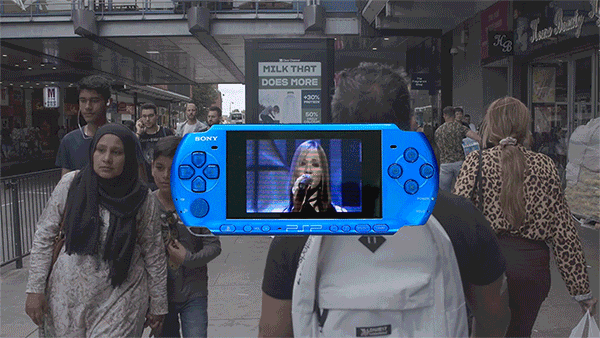
MEDICATED SUMMERS / BENEFITS TRAP / ENDS PORTALS two-part momentational sequence consisting of a short video and an image dump PDF file by ADAM FARAH
TAYLOR LE MELLE responds to MEDICATED SUMMERS / BENEFITS TRAP / ENDS PORTALS by Adam Farah
lucy clout
An Analog for Listening by NIKHIL VETTUKATTIL
nat lall
dan walwin
Creating safer spaces
The web is not a neutral space. From its beginnings as a US defence initiative to improve communication with soldiers in remote places, through to the privileged, racial capitalistic understanding of freedom and ‘making the world a better place’ the Californian ideologists who continue to structure and profit from it maintain. There has been an equally long history of artists and technologists critiquing this version of its development which Flatness builds upon.
Flatness is working on becoming a safer and accessible space free from racism, sexism, ableism, ageism, classism, casteism, homophobia, transphobia, fatphobia, or hatefulness. Let us know if there are ways we can do this better.
Subscribe to the Flatness newsletter for project updates.
Donations are always welcome for supporting the project.
Web design & programming by Gailė Pranckūnaitė & Andrius Zupkus.
All texts, works and images either belong to the artist, author or photographer named or are licensed under the terms of this CC 4.00 certificate.
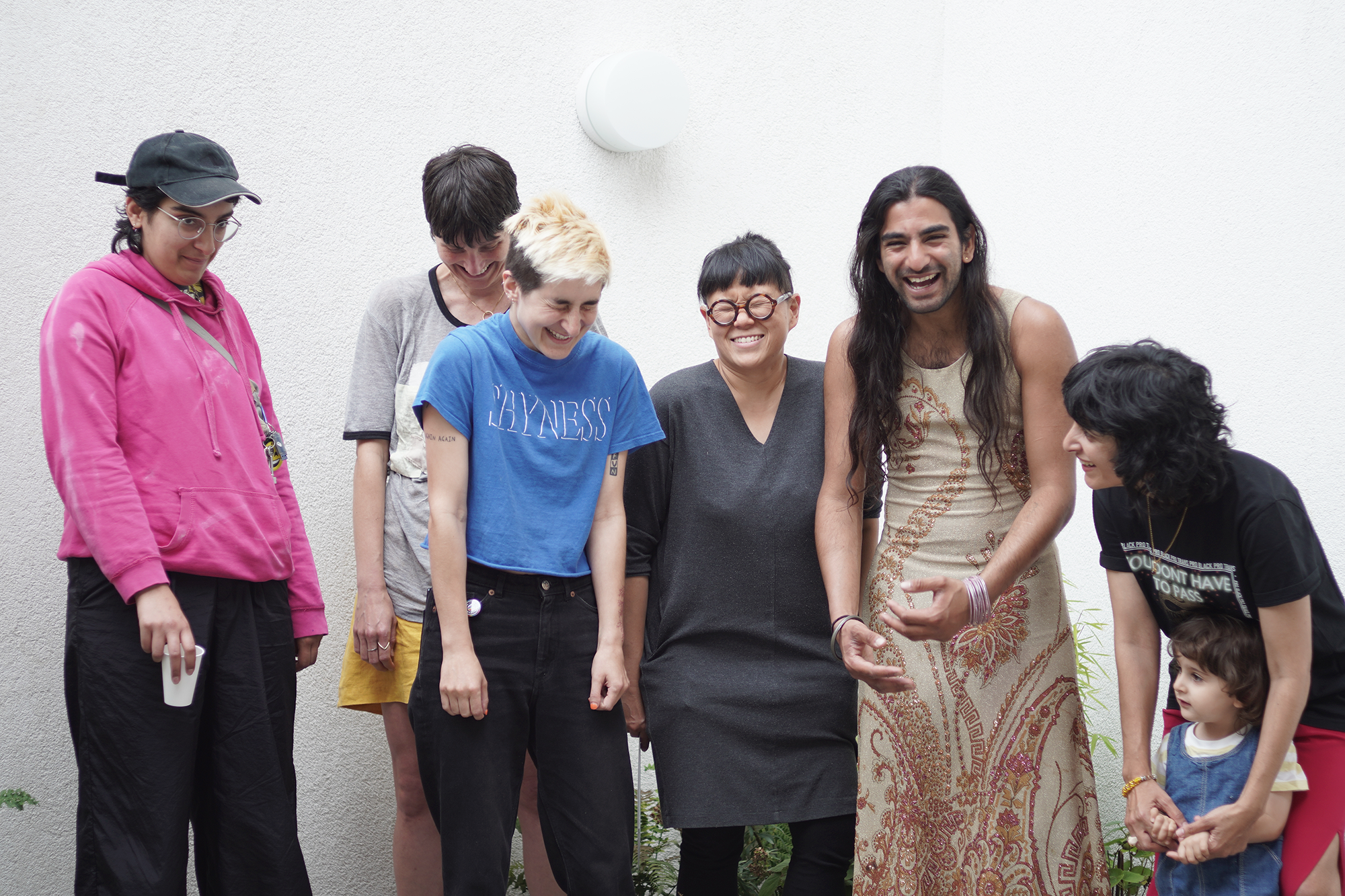
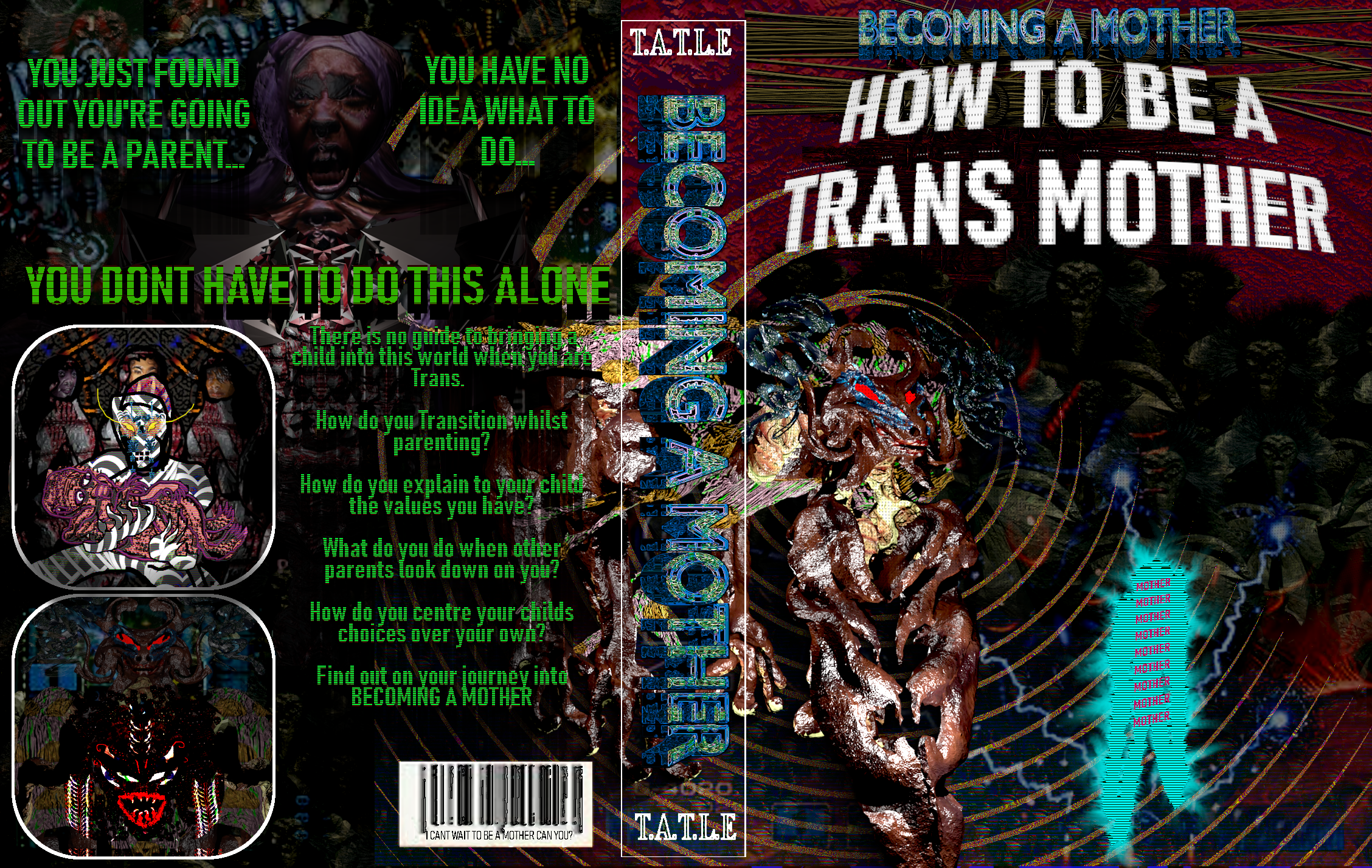
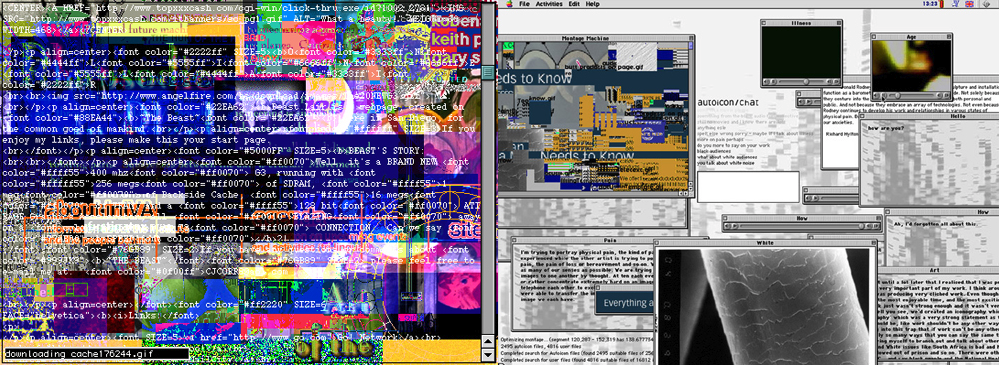


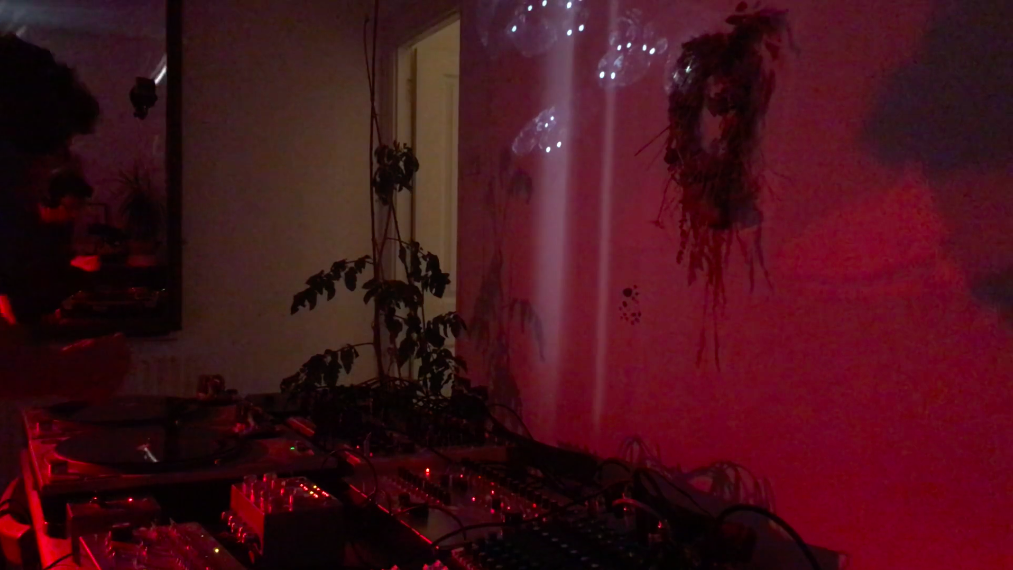
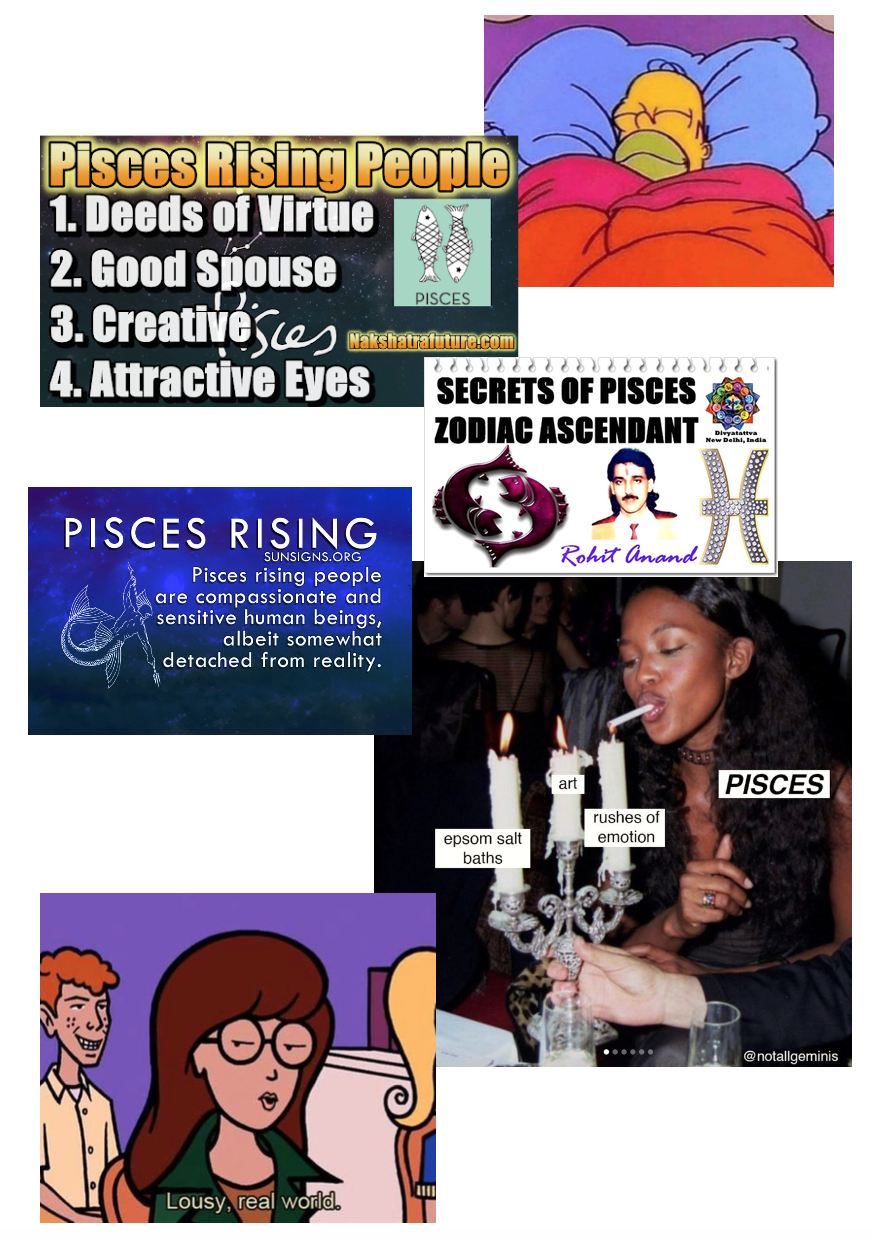
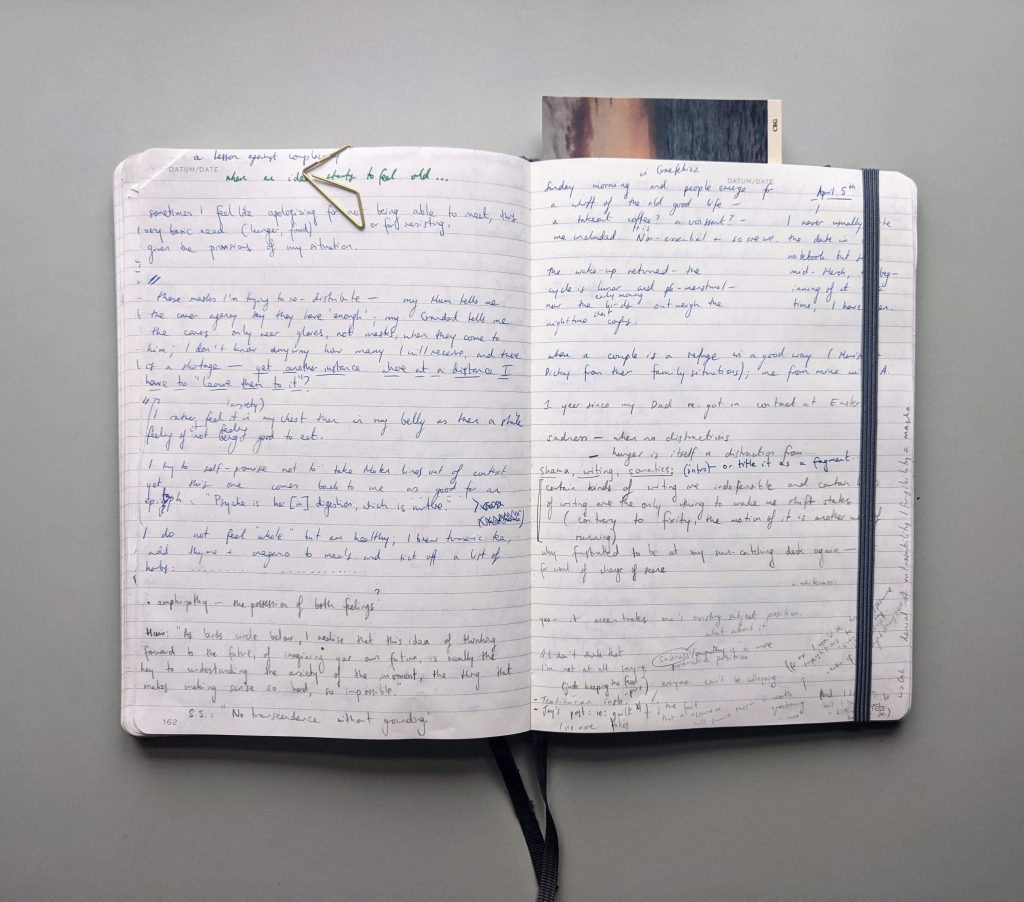
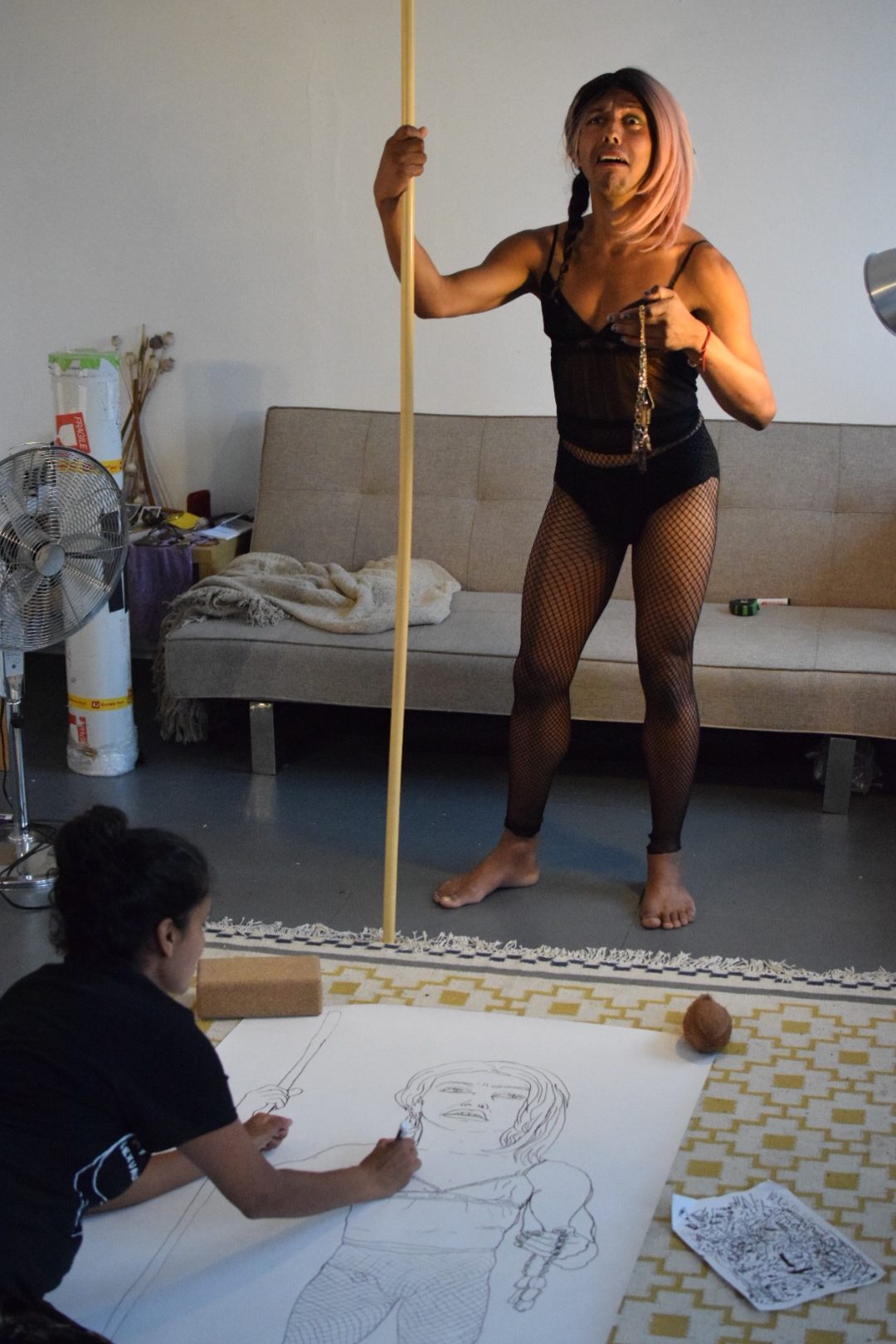
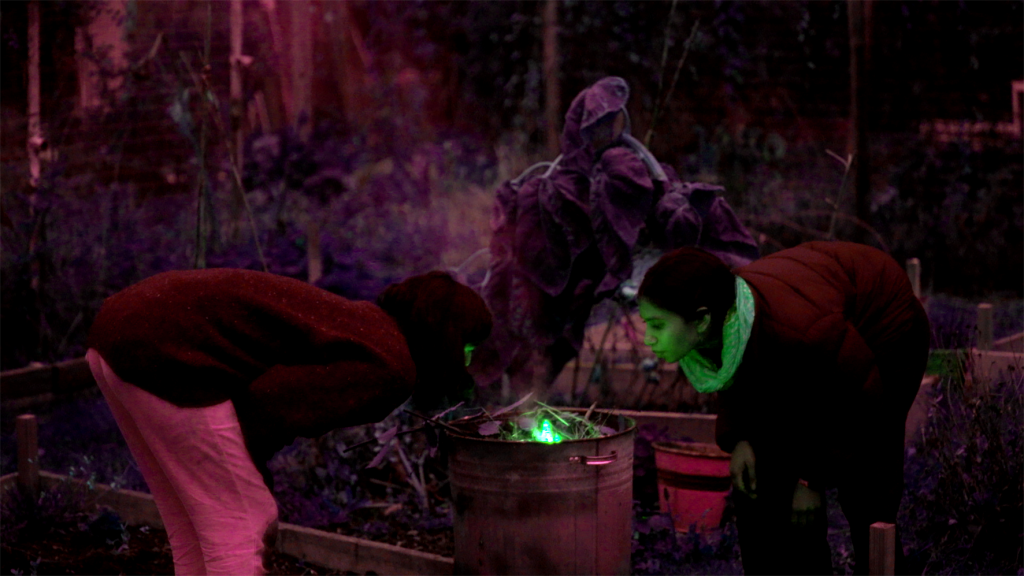

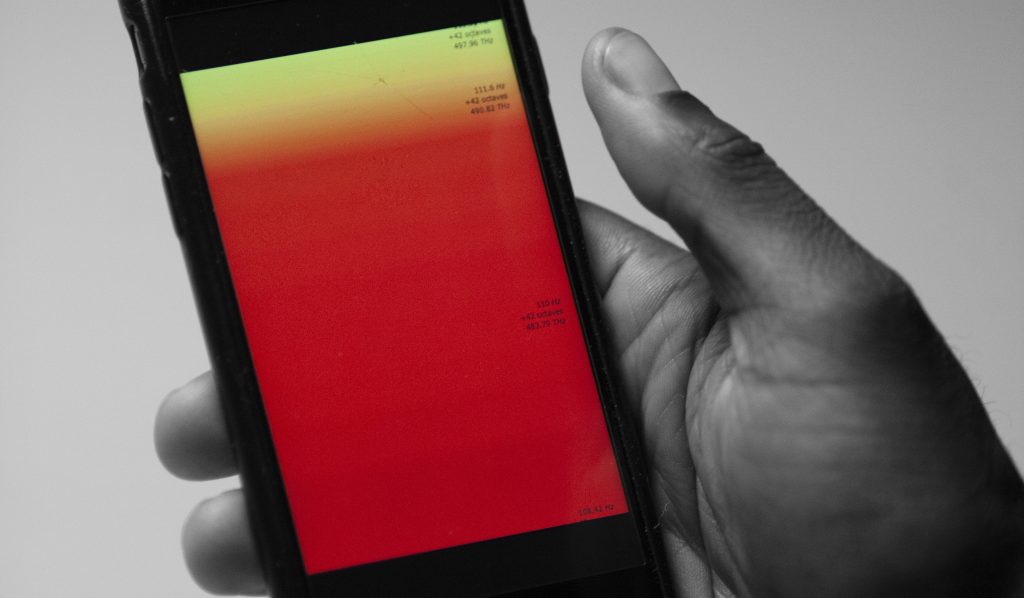
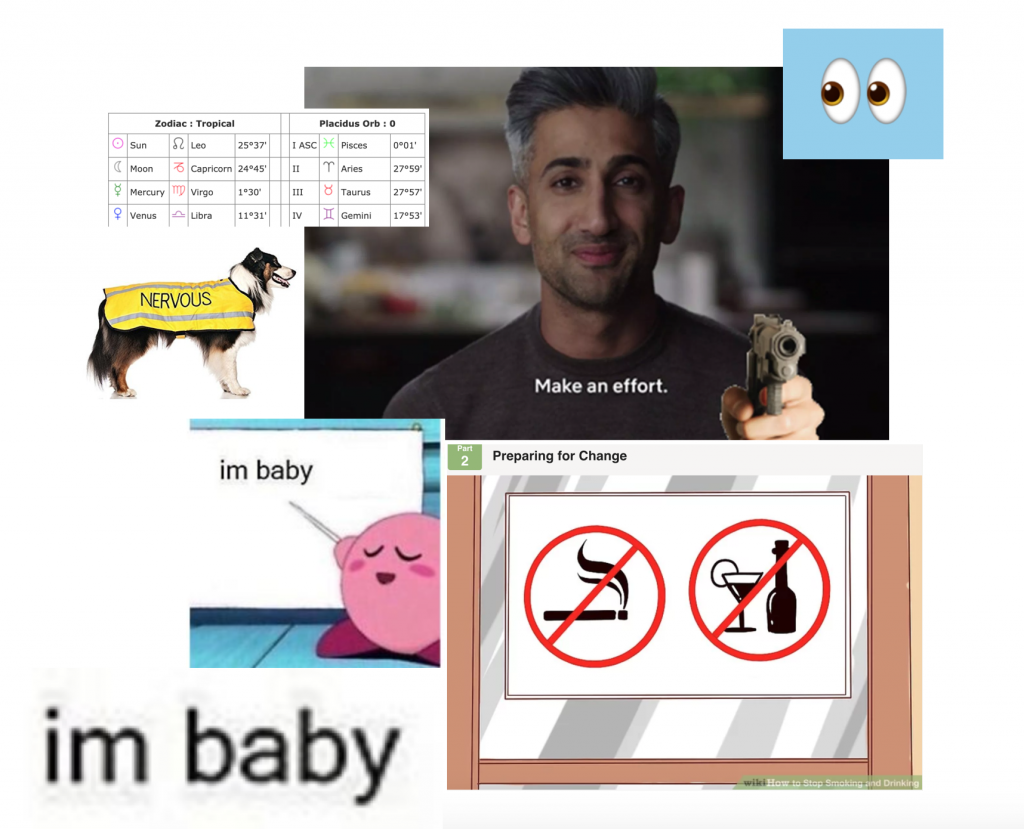

Comments
I love how Legacy Russell has just posted about how the institution needs ‘glitching’ to be able to decolonise it
Can you say more about how this tension can be a productive vehicle?
I agree, it’s rare to feel heard within institutions. Recent (before lockdown) talks I’ve given at Slade, Cubitt and Rietveld Academie have purposely taken place outside their walls.
The visibility of digital spaces like Flatness are so vital as we cannot rely on institutions make visible the work and practice of people of colour.
When I began my art education I had never heard of Donald Rodney, Keith Piper, Eddie Chamber, Claudette Johnson. The first I heard of them was on my degree. I had a series of art lectures where we looked at the Black Arts Movement from the 1980s and I now know what an anomaly that was in the early 2000s.
ST: I like that you have talked about the ‘stubborn ones’ who still persist. Because it takes so much resilience to persist in a space that is not designed for you. And that narrative of parents not being able to see how we can make a living from it is one that I have heard a lot, although that was not my experience. My mother was very encouraging – she just made sure that I knew the challenges that lay ahead.
Steve McQueen’s Small Axe series is an education in grief, rage, history and music for the eyes. My only gripe is for there to be more Blk womxn protagonists.
Two unique solid silver cast chewing gum rings by Lucy Clout are available to buy for £150. Contact Lucy via IG or I can pass on your message https://www.instagram.com/p/CIvVGfvlZdm/
The new link for Barby Asante’s Declaration of Independence. Starting just now http://www.youtube.com/watch?v=_mO09Rs8QSc
Sylvia’s exhibition ‘Thirteen Ways of Looking’, of which Flatness is one of the thirteen ways, officially closes on Sunday but she and I are planning to meet here (on the Flatness comments feed) next Wednesday 16 Dec at 1pm for a live discussion. Join us then with any questions of your own or follow the convo afterwards (you can click on the Comments heading to expand the page).
This Saturday Flatness will be taking part in Barby Asante’s ‘Declaration of Independence’ commissioned by Brent 2020 https://www.brent2020.co.uk/brent-stories/open-call-barby-asante-declaration-of-independence/
This Saturday join filmmakers Rhea Storr, Rehana Zaman and Ayo Akingbade as they discuss their work in relation to the Legacy of the UK Black Film Workshop Movement https://homemcr.org/event/panel-discussion-exploring-the-legacy-of-the-uk-black-film-workshop-movement/
Read Chandra Frank’s lush and insightful essay on Rehana’s video ‘Your Ecstatic Self’ here https://secondsightessays.co.uk/2020/11/13/your-ecstatic-self/ https://www.flatness.eu/contributors/rehana-zaman/
Hi Sylvia, thanks, yeah my parents wouldn’t allow it because they couldn’t see how I could make a living through it, which I know is a common situation for BPOC students (especially now with tuition fees – thankfully there are more and different options opening up). For the stubborn ones who persist despite setbacks the text points out a few routes you needn’t waste your time with. But yes, even for BPOC who did go to art school the text and Flatness are there for you absolutely. I’m so glad you found it and recognised it as a ‘site of resistance’. And to be curated alongside works like Donald Rodney’s ‘Autoicon’, (a digital version of the artist created to speak for him in (or from?) the future), which embodies that. I think it’s important that we see ourselves apart from the establishment and those buildings you write about in your text. Did you know about the older works you selected when you began your art education? https://www.instagram.com/tv/CHznFfyH_my/?hl=en
I find it interesting that you dedicate ‘State of the Union’ to BIPOC who were not able to go to art school. Can you say more about that statement?
I’m thinking about it now, and I know that I would have really benefitted from spaces like Flatness when I was first starting out in art education.